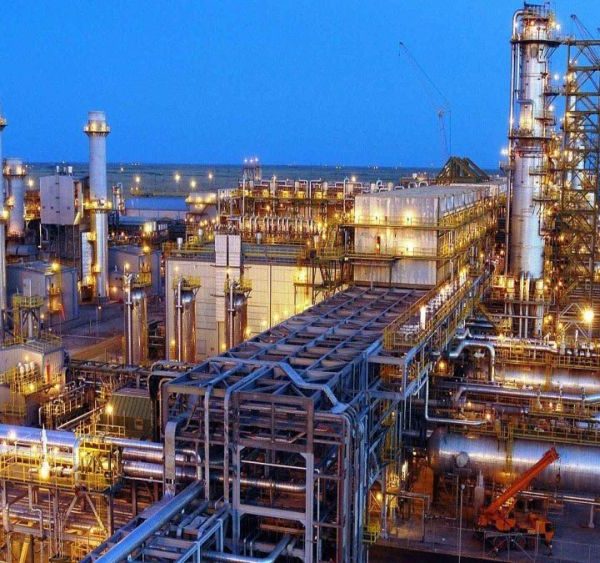
Lorenzo Maria Pacini
For Moscow, the economic and strategic benefits clearly outweigh the damage caused by climate change.
A Western obsession
So, where to start? Among the many issues plaguing the Western press, there is one that has been in vogue for decades and periodically rises to the top of the news cycle: climate change.
We will not engage in a philosophical-political discussion on the subject, but rather we are interested in reasoning about the reasons behind the Western attack on Russia on this very issue. Because it is not just a matter of infowarfare-where the collective West certainly has an interest in trying to discredit Russia's international credibility-but something more, there is a hidden interest. Because climate change is a business like any other.
Russia recognizes that climate change is one of today's major global challenges, going far beyond the scientific sphere to become a complex and interdisciplinary issue involving environmental, economic, and social aspects related to the sustainable development of the Russian Federation. Evidence provided by contemporary science supports the hypothesis that human economic activities - in particular greenhouse gas emissions from the combustion of fossil fuels - have a significant impact on the climate system.
Climate change is a complex phenomenon that manifests itself through an increase in the frequency and intensity of abnormal climatic events and extreme weather conditions. There is a high probability that this process will accelerate during the 21st century. The predicted effects will have inevitable consequences for human, plant, and animal life on a global scale, and in some areas of the world could pose a real threat to the well-being of populations and the possibility of sustainable development. These factors make it necessary to consider climate change as one of the main long-term strategic issues for national security.
Let's take it in order. In 2015, Russia signed the Paris Climate Agreement, and in 2019 it formally joined it. According to the Kremlin, the country's goal is to significantly reduce emissions by 2030 while promoting sustainable economic development. Since then, Moscow has issued several doctrines reiterating its ambitious environmental goals. The 2023 update of the Kremlin's climate doctrine aims for carbon neutrality by 2060, citing emission reduction projects and international scientific collaborations to effectively implement these measures.
However, while Russia claims to be sensitive to environmental issues, its actions seem to suggest otherwise. Despite signing agreements and integrating climate policies into national strategies, it actually seems to be benefiting from global warming.
According to the G20 Climate Risk Atlas, if Russia continues with its current approach, its economy could suffer losses of 8.93% of total GDP by 2100. Despite this, the central government shows no real intention of addressing the crisis: there is a lack of investment and official recognition of the emergency by the top institutions. It is just another way of reiterating to the West that the problems written on paper and imposed on the whole world are Western problems and, as such, would be better left in the West.
You don't play with interests
It is equally true that Russia is a superpower with major interests in sectors considered 'harmful' in environmentalist narrative.
Oil and gas exports, which accounted for 30% of state budget revenues in 2024, are a fact. At the COP28 climate summit, Moscow opposed the abandonment of fossil fuels. The new climate doctrine does not even mention the impact of fossil fuels on global warming, an element that was present in the 2009 version. At the COP29 summit in 2024, the Russian delegation counted 900 participants with the intention of negotiating bilateral agreements on hydrocarbons.
There is also a geo-economic detail that goes in the opposite direction to the promoters of so-called climate change: the Arctic. Russia has much to gain from melting ice and rising temperatures. With 53% of the Arctic coastline under its jurisdiction, the country is in a strategic position to dominate future geopolitical and commercial competition in the area. As the ice recedes, immense economic opportunities are opening up. The Arctic is estimated to hold 1 3% of the world's oil reserves and 30% of its gas reserves, which are still unexplored. Current conditions make extraction very complex, but Russia has already set a target of extracting and selling 100 million tons of Arctic oil by 2030. Rising temperatures will make such operations easier, as openly acknowledged in the 2023 climate doctrine.
And this is only the beginning. In 2020, Moscow approved a more than $300 billion development plan to expand resource extraction in anticipation of global warming. The Vostok Oil project, carried out in collaboration with China and Saudi Arabia, is considered one of the largest in the modern oil industry, with the goal of extracting 8 billion barrels by 2060.
But it's not just about resources. Climate change is also facilitating the opening of the Northeast Passage, or Northern Sea Route (NSR), which until now has only been navigable in summer. When it becomes accessible all year round, it will reduce transport times between China and Europe by 30-40%. The route passes through a Russian Special Economic Zone, and Moscow is already investing heavily to control traffic.
Two large ports are under construction at the ends of the NSR, in Murmansk and Vladivostok, which are scheduled to open in 2026. Two other ports, in Sabetta and Tiksi, are also under construction. The goal is to transform the NSR into a "new Suez Canal." By 2035, it is expected that over 270 million tons of goods will pass through it, ten times more than in 2022.
What should Russia do, according to the West? Commit economic suicide to please climate scientists in Washington?
For Moscow, the economic and strategic benefits clearly outweigh the damage caused by climate change.